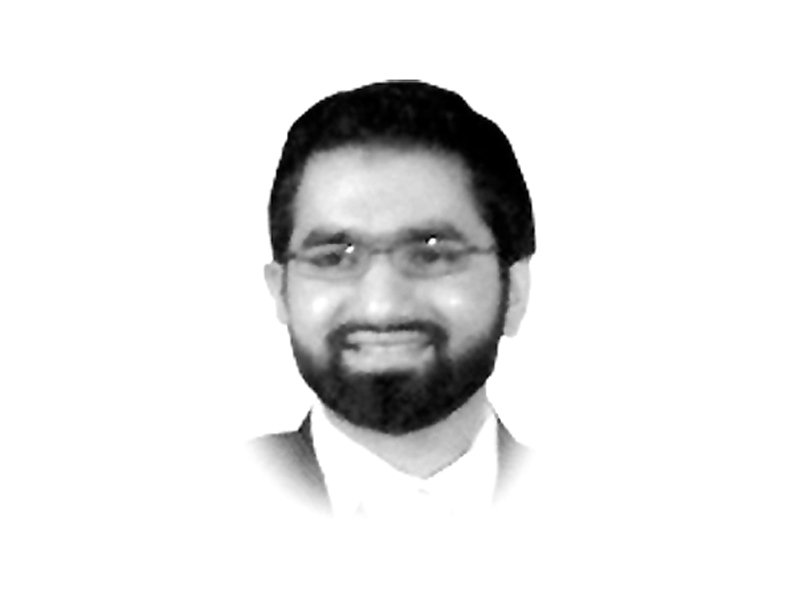
In the last general elections, the media fraternity became a ‘part of the story’ they were reporting, by openly advocating the need to restore a democratic system in Pakistan. In a classic David versus Goliath struggle between the ‘people’ and a dictatorship, the majority of Pakistani journalists chose to side with the people. Among other things, their position was self-serving: a democratic system of governance enables a free press to flourish.
Unfortunately for the media, representing the voice of the people became more complicated during Dr Tahirul Qadri’s long march last month. Only in Pakistan can a religious-cum-political leader assemble a ‘people’s parliament’ in the capital city, demanding the overthrow of an elected parliament. Suddenly, journalists were put in the awkward position of having to decide who represents the voice of the people — the ‘sea of people’ gathered in Islamabad or the ‘elected representatives of the people’ in government.
As the hours turned into days, a movement aimed at bringing down the government overreached and threatened to overturn the democratic system itself. Pakistani journalists — betraying their short memories — had an awakening and refused to serve as pawns in a greater game that would enable Dr Qadri to become the Trojan horse that dismantled a fragile democratic system.
A few days later, Dr Qadri’s choreographed exit from Islamabad was hailed as a ‘victory’ for democracy by journalists and commentators. In the same breath, Dr Qadri’s movement was celebrated as a much-needed peaceful jolt to the democratic system. This backslapping between journalists and commentators, positioned as news analysis, left much to be desired.
To cut a long story short, journalists were essentially celebrating the fact that they had behaved maturely — along with the opposition parties — to save democracy from an existential threat to the system. At the same time, they concluded that this threat to the democratic system was necessary to force the ruling coalition to spring into action and raise its game ahead of the elections.
The logical (but underexplored) conclusion of this argument is as follows: existential threats to the democratic system are good for the system as long as they don’t actually succeed! This perversely logical conclusion is no cause for celebration.
Unfortunately, the news analysis presented by Pakistani journalists is often coloured by the need to emphasise their own role as part of the larger narrative. In this case, the media’s coverage of the long march demonstrates that Pakistani journalists don’t merely report on the health of the country’s democracy; instead, they actively seek to ‘save’ democracy from perceived threats to the system.
The principles of ethical journalism stress the importance of an objective distance between journalists and the story they are reporting. For example, if there is a disagreement between two political parties, the job of a good journalist is to report on the differences between the party positions, not pick a side.
That’s not how things work in Pakistan.
To the extent that Pakistani journalists appear to believe that they have a God-given responsibility to lead the ‘illiterate/innocent masses’ out of ignorance, they suffer from the same holier than thou saviour complex that they seek to protect Pakistanis from. When revolutionary fervour is in the air, journalists need to focus on doing their job right — reporting the news of the day objectively — instead of trying to lead the country in a specific direction. In doing their jobs objectively and honestly, Pakistani journalists will automatically give a voice to the Pakistani people, without colouring national discourse with their own perspective.
Published in The Express Tribune, February 2nd, 2013.
COMMENTS (6)
Comments are moderated and generally will be posted if they are on-topic and not abusive.
For more information, please see our Comments FAQ


1731570357-0/elon-musk-(1)1731570357-0-165x106.webp)
-(1)1717678110-0/Kendrick-(1)-(1)1717678110-0-165x106.webp)








@I think, "I think": I did not miss the point. How can a man who parachuted in from Canada and is not even eligible to contest elections in the country with 40,000 people in his dharna declare himself as voice of people if the people who got far more votes are considered as not being voice of people? True the current rulers maybe highly unpopular today and in that case democracy will give chance to the people to vote them out and vote in someone the feel are more effective in gving a voice to ther feelings.
@gp65 .: You missed his point. Read it in the perspective of Islamabad dharna vs an elected parliament - the contradiction that the writer himself is alluding to in the heading.
"Democracy versus the people’s voice"
Democracy may articulate the people's voice imperfectly but I don't know of any other system that articulates the people's voice at all. The title therefore is inherently contradictory.
There is an apparent pessimism developing in the Pakistani mind with regard to democracy and its success as a system. There have been certain issues, problems that have come up during these five years and their effect on the democracy in Pakistan; which is at a relatively nascent stage; has not been very positive. However, democracy and real democracy as a system has an inherent strength by which it is able to sustain such shocks and political tremors to a considerable extent. The doubts of the intelligentsia in Pakistan is natural because of the past political experience in the Islamic Republic wherein the army has stepped in whenever there have been any political unrest and political instability thus democracy has suffered a setback and was not able to take roots in the country. The critics with regard to democracy in Pakistan must try getting more suggestive rather than being critical about the problems within the country. Democratic evolution of this Islamic state can take time but requires the support of the people of Pakistan and along with it a confidence that the state can develop into a democratic nation. Evolution is a long process but has to be given a chance.
Correct analysis. Journalists will learn sooner or later, that, they are not people but professionals reporting an event or a story.
In our political system 70 % politicians do not know what actually constitution is - no idea at all even possible because they do not have formal educational background and they carry fake supporting degrees.20 % have some idea but for consultation and reference purpose they learn something about constitution and quote time to time during their exposure to people and media.Less than 10 % do know how government should be run in accordance with rule and laws but amongst them less than 0.1 % are in position to do some thing productive. With this bunch of uneducated and low -wit law makers every one has the right to play